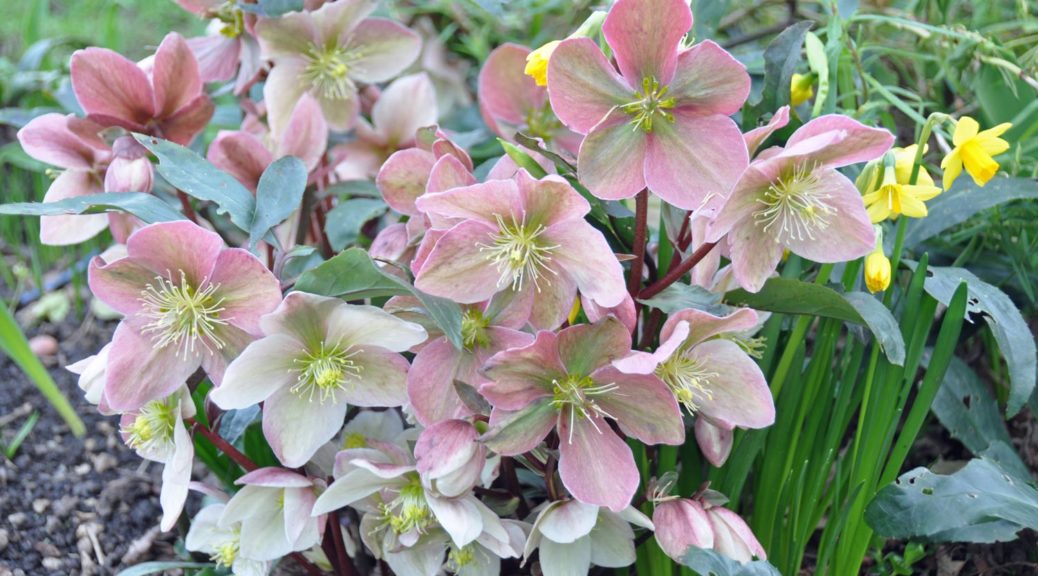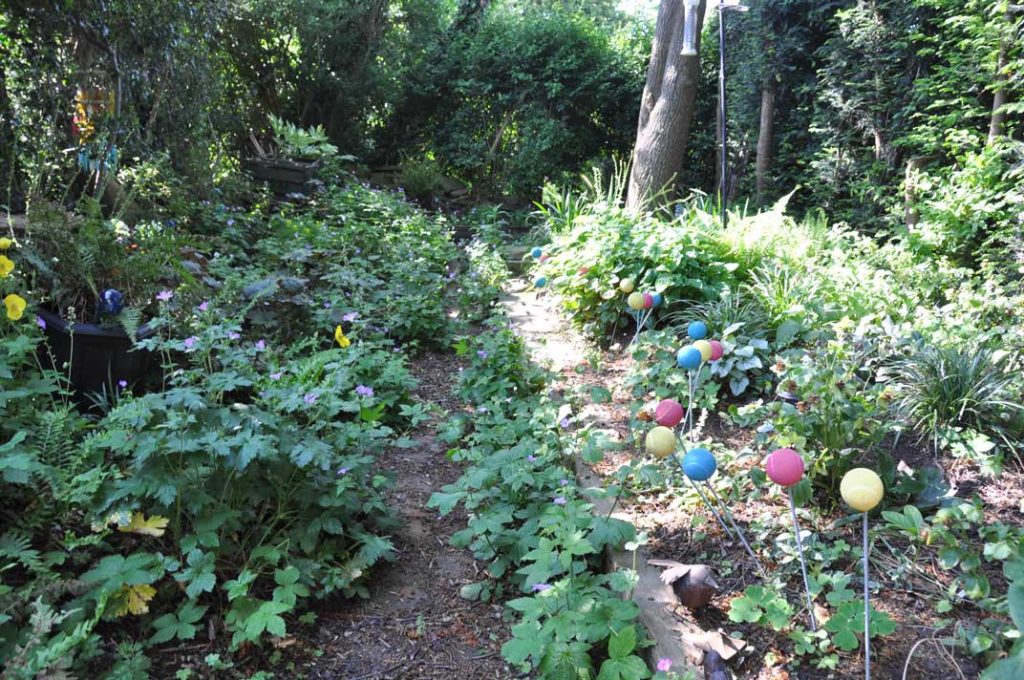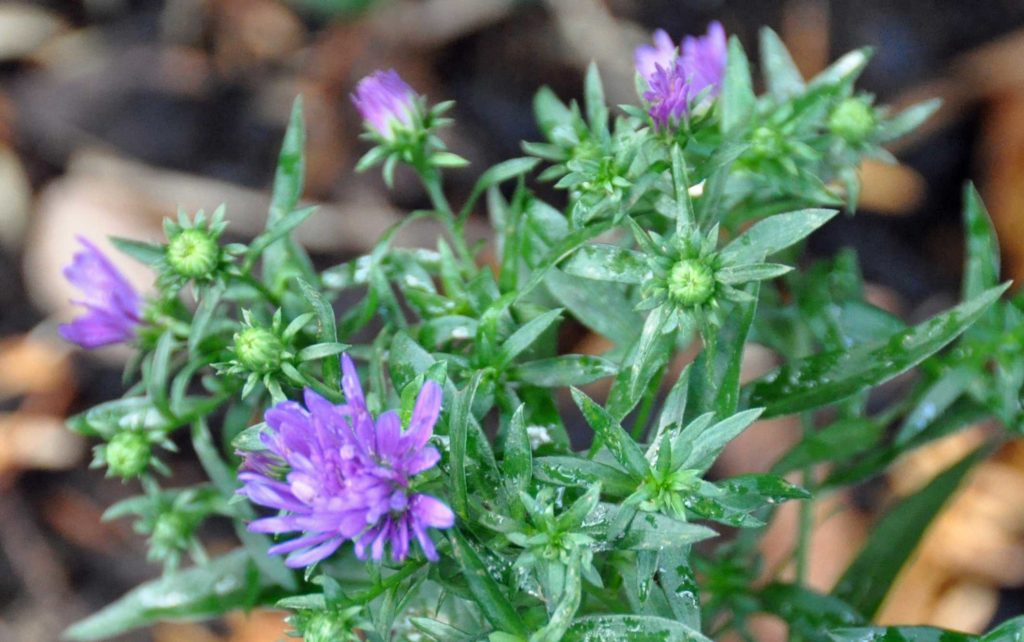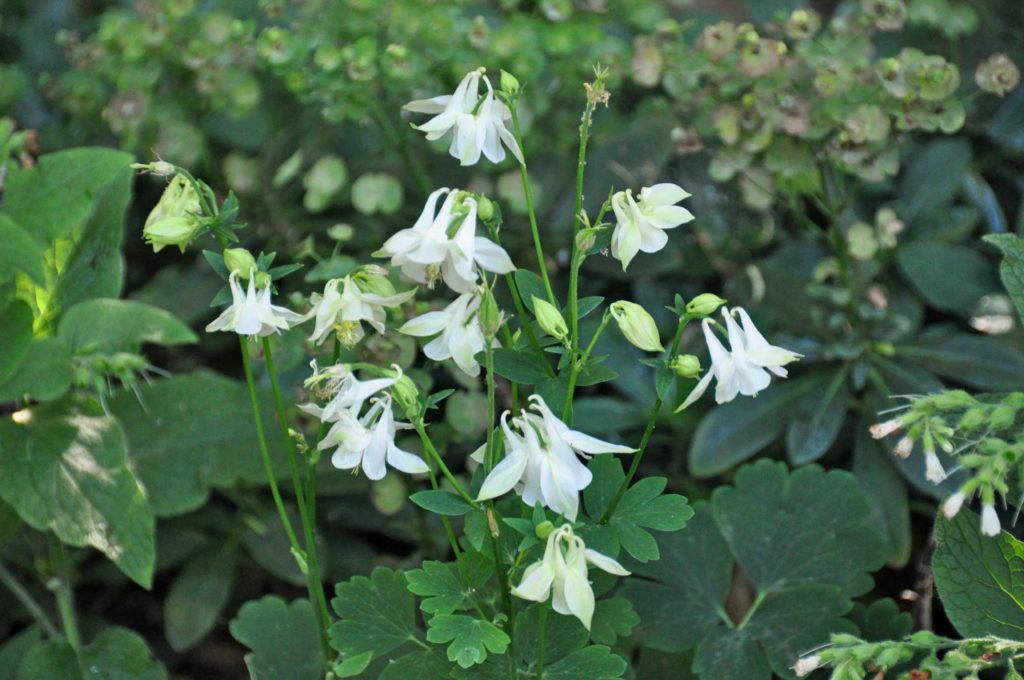A few years ago, I decided to clear and plant up a piece of near derelict land at the back of my garden. It changed from this:
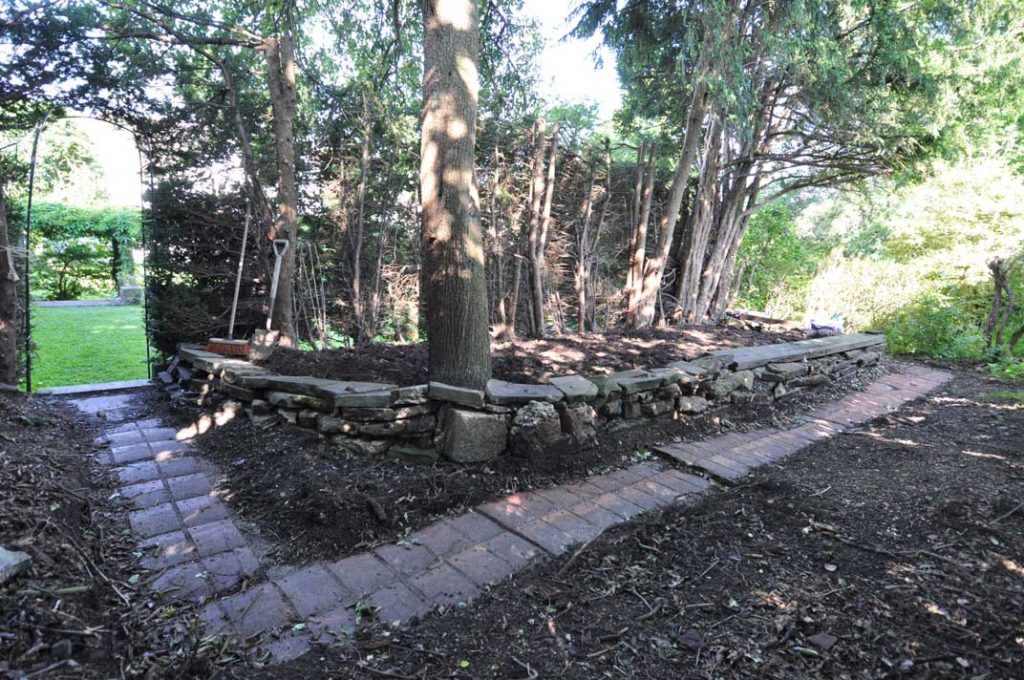
to this in just a few years:
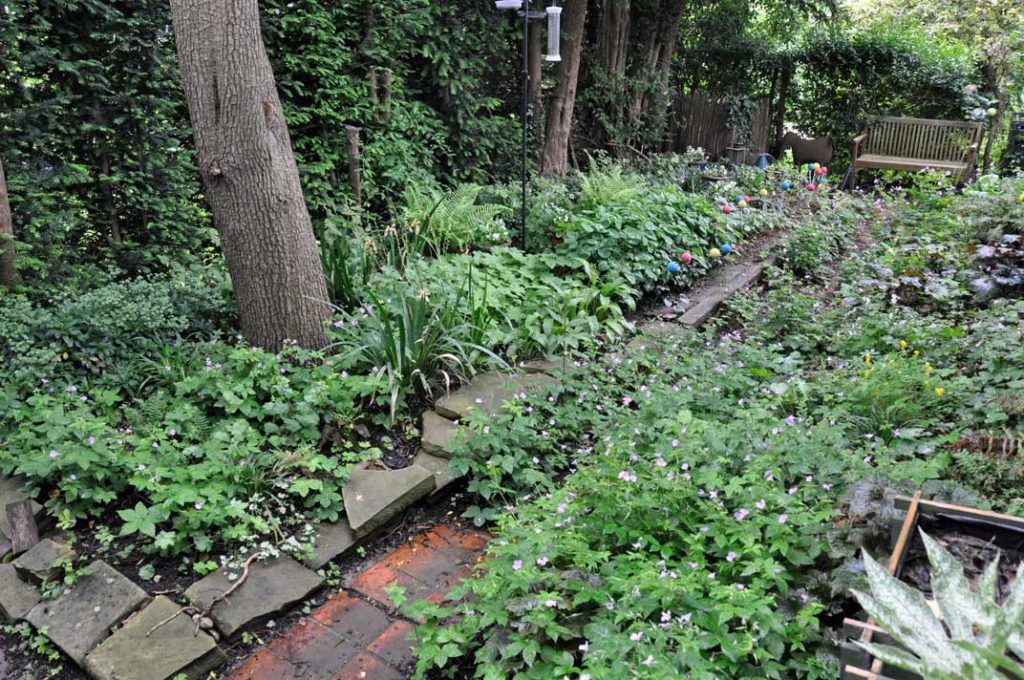
And although there are still bare spots and difficulties, sometimes I still feel like ripping it all out and putting up a shed or garden office, mostly it feels like a successful project.
All of the plants originally planted out were sold as “good for dry shade” which is probably the trickiest part of a garden to plant up
Many of the most successful plants would be described as weeds, if they weren’t welcome ground cover.
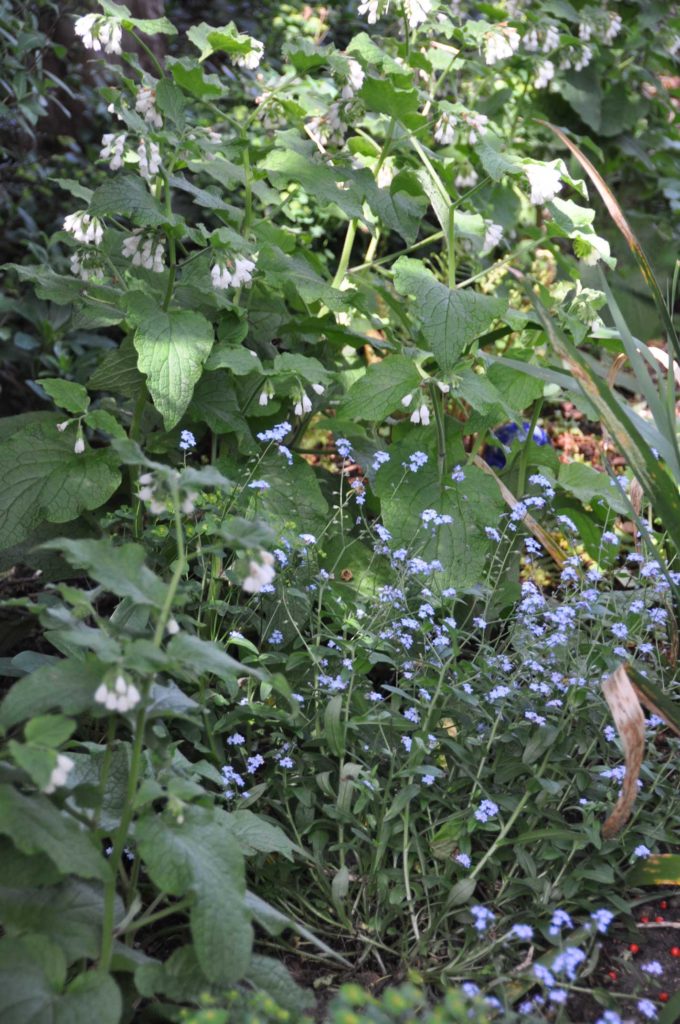 Forget-me-nots, campion, woodruff, comfrey, tiarella etc are all happy in the dry dark.
Forget-me-nots, campion, woodruff, comfrey, tiarella etc are all happy in the dry dark.
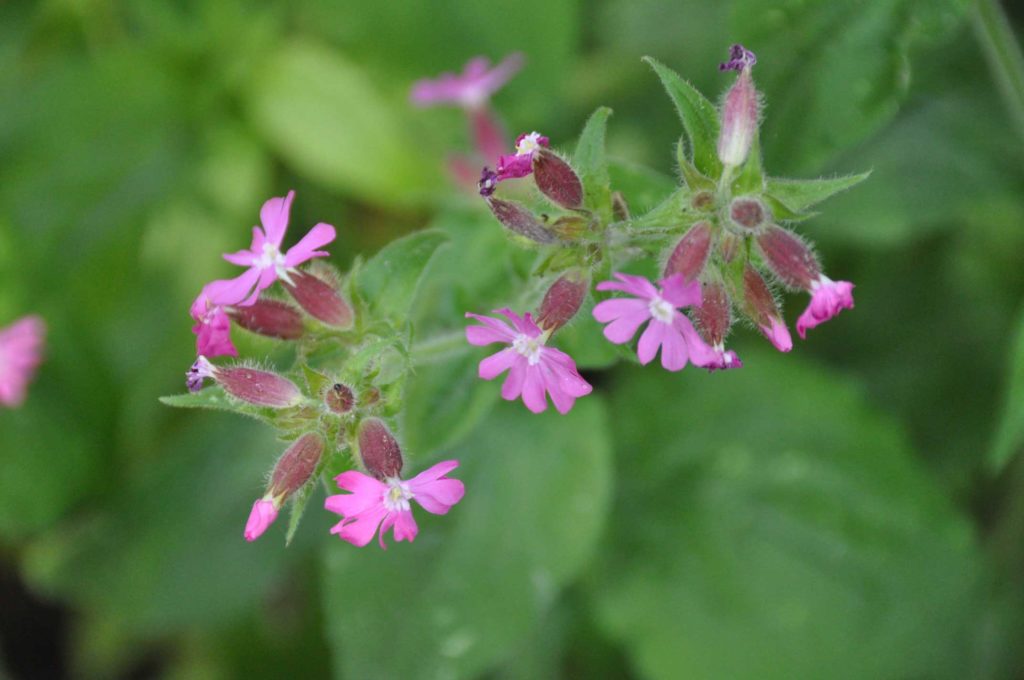
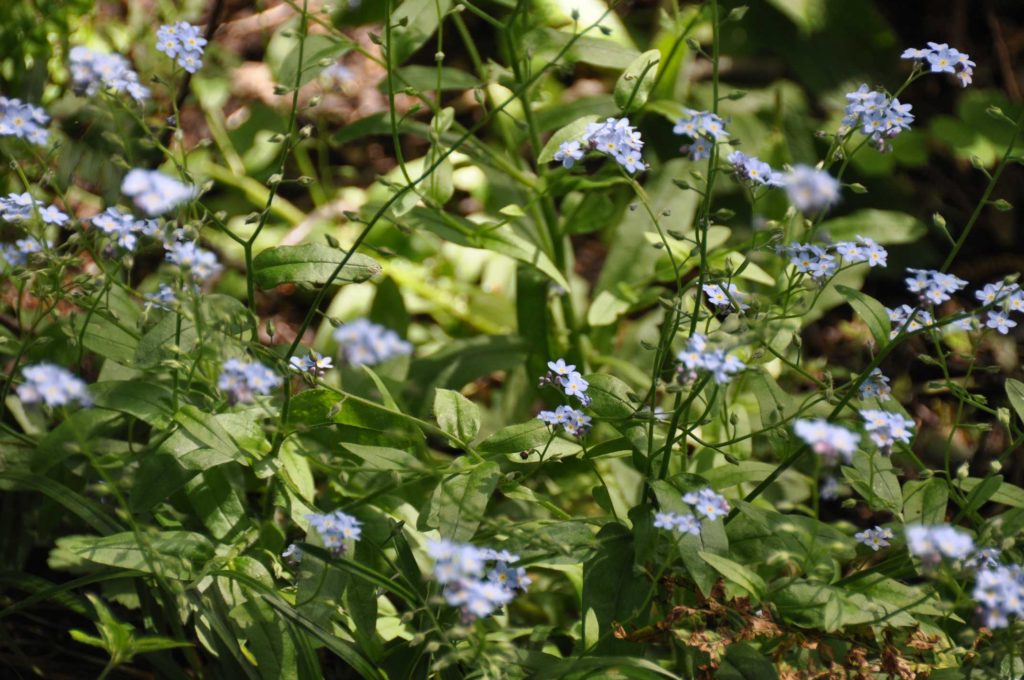
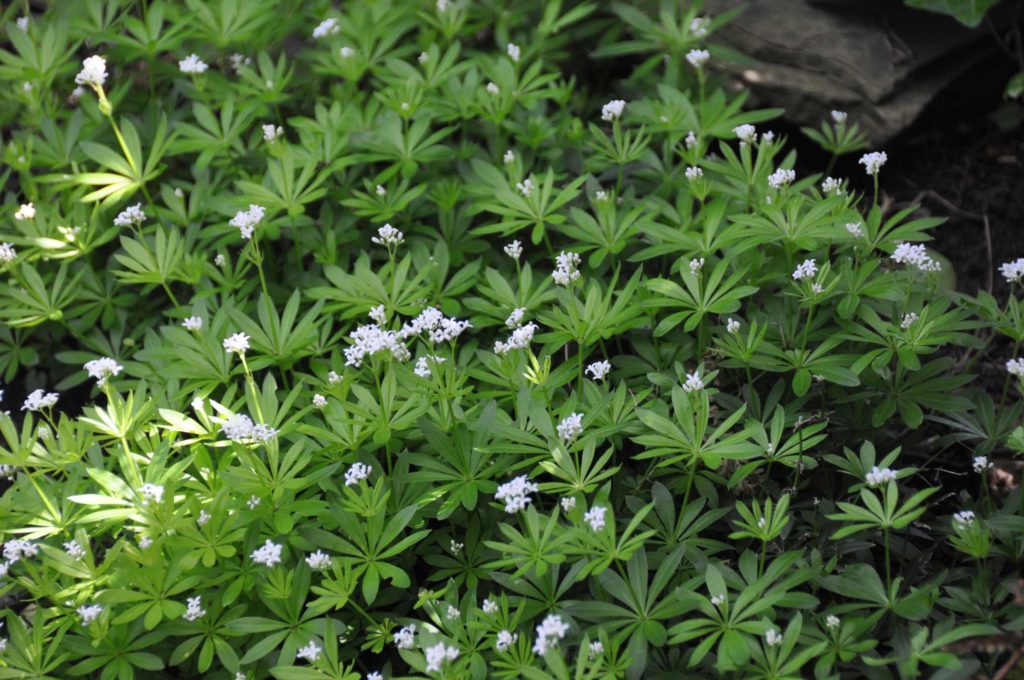
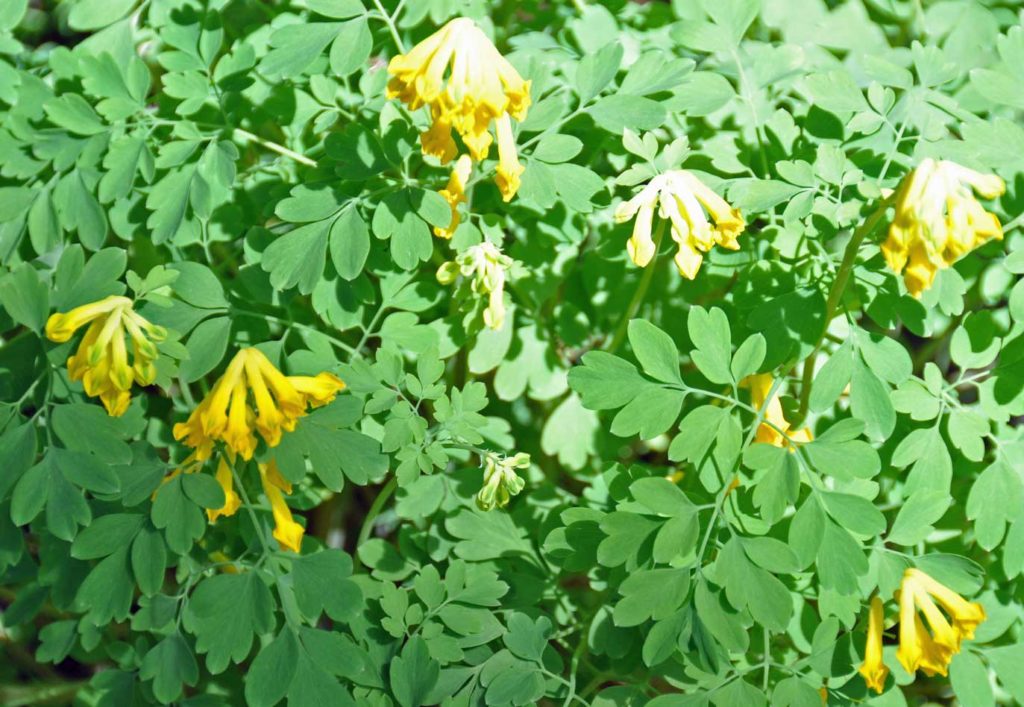
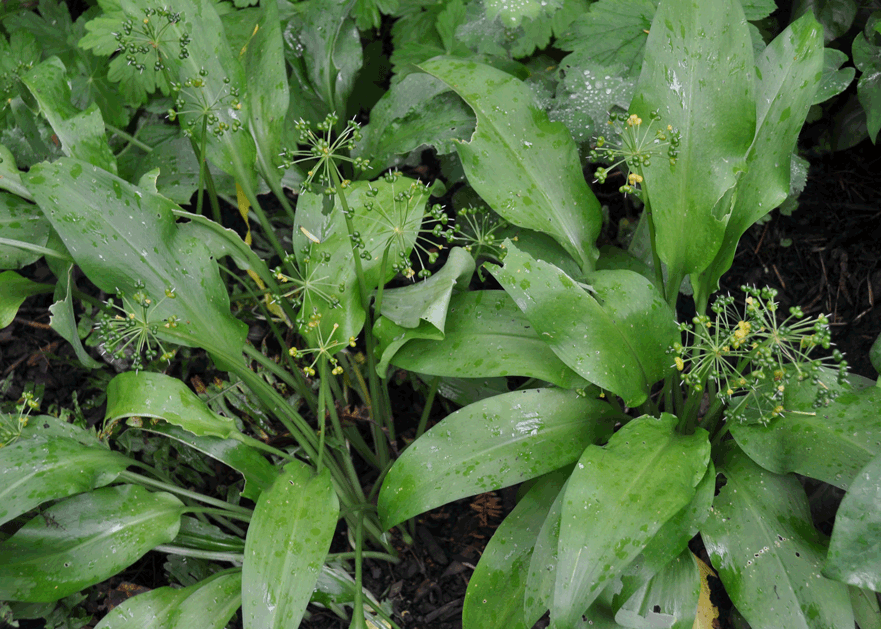
Plants that have been successful in this space, will thrive anywhere. Most of them are thugs that would be a problem in a better spot so should definitely be planted with care. They include:
- Euphorbia amygloides
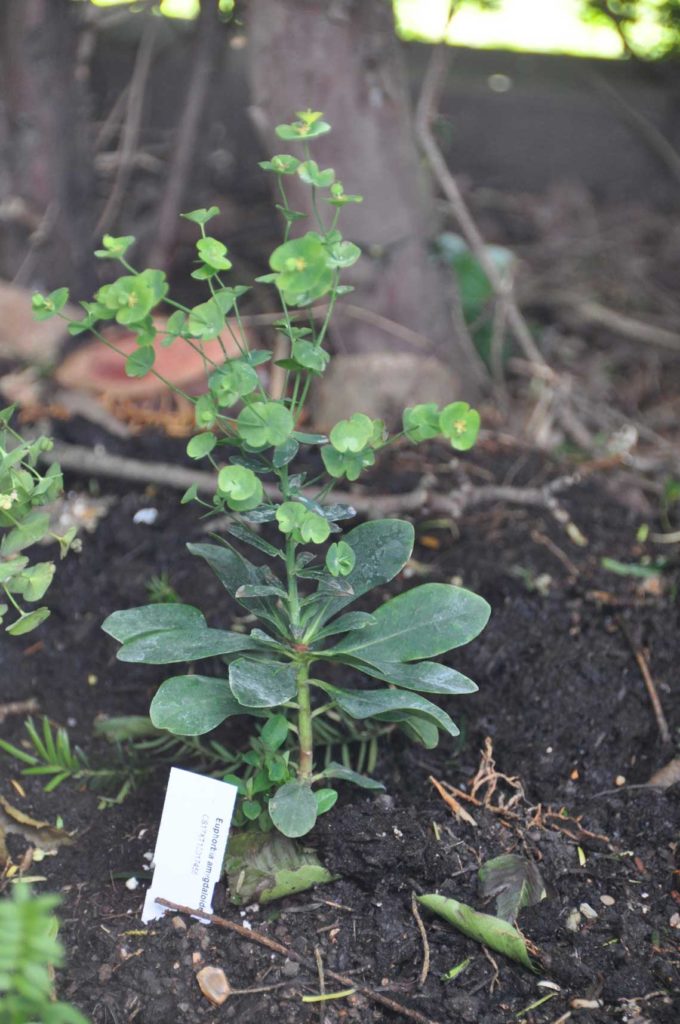
This was planted right up underneath the yew hedge and has not only survived but thrived. It keeps sending out the troops, little sucker plants into the beds further away from the hedge, and so far at least I seem to be able to keep them back.
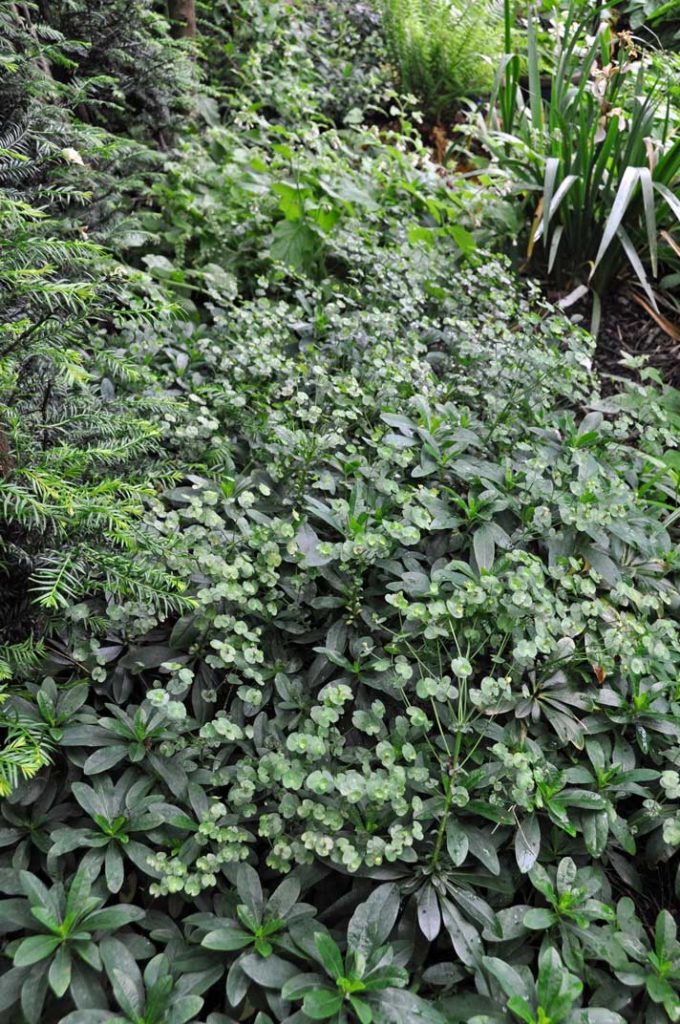
- Iris Foetidissima
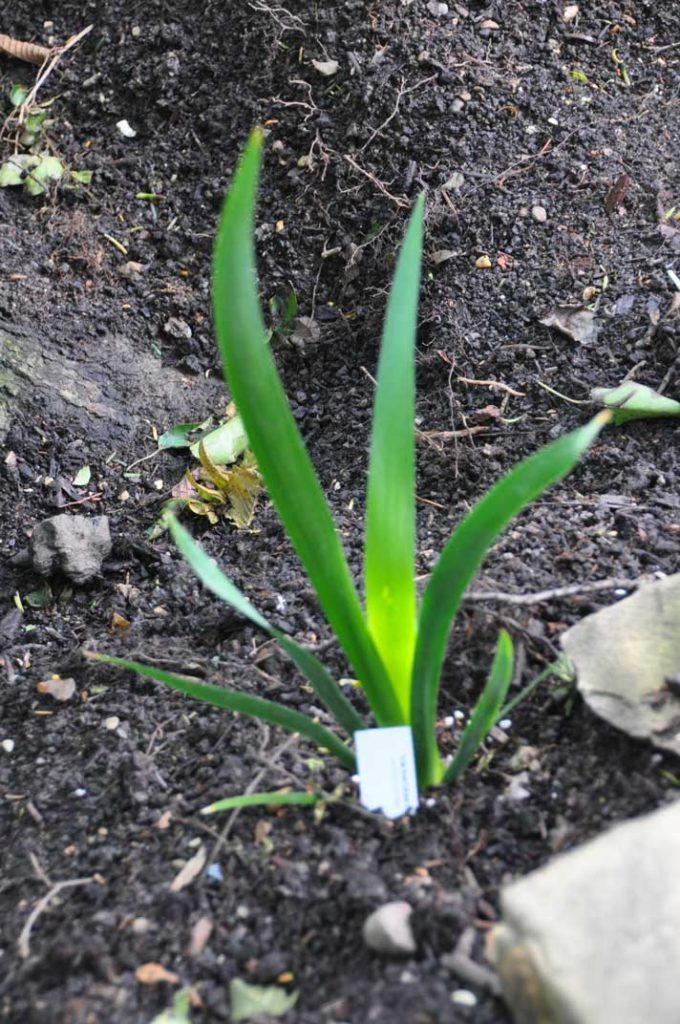
This is supposedly planted for it’s attractive seedheads rather than it’s flower. I’m not so fond of either and keep thinking that it’s time to take it out. It has grown underneath the pear tree and sent it’s seeds out to the rest of the bed each year. I keep digging the, up and replanting in the driest corner. It’s growing but in these conditions struggles to spread itself about.
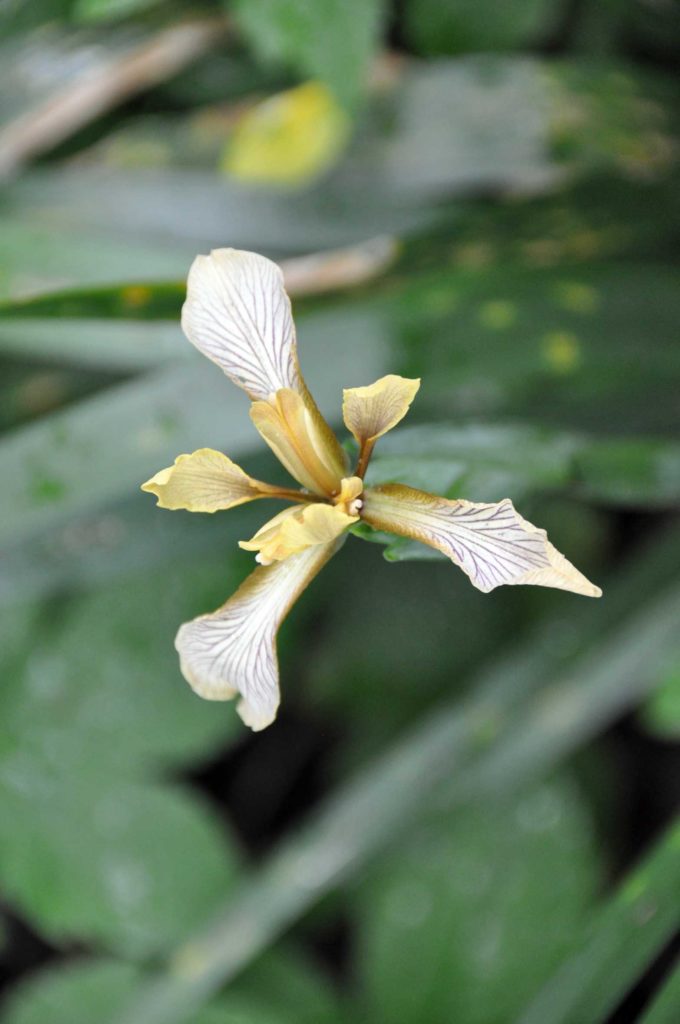
- Epimedium x versicolor “Sulphureum”
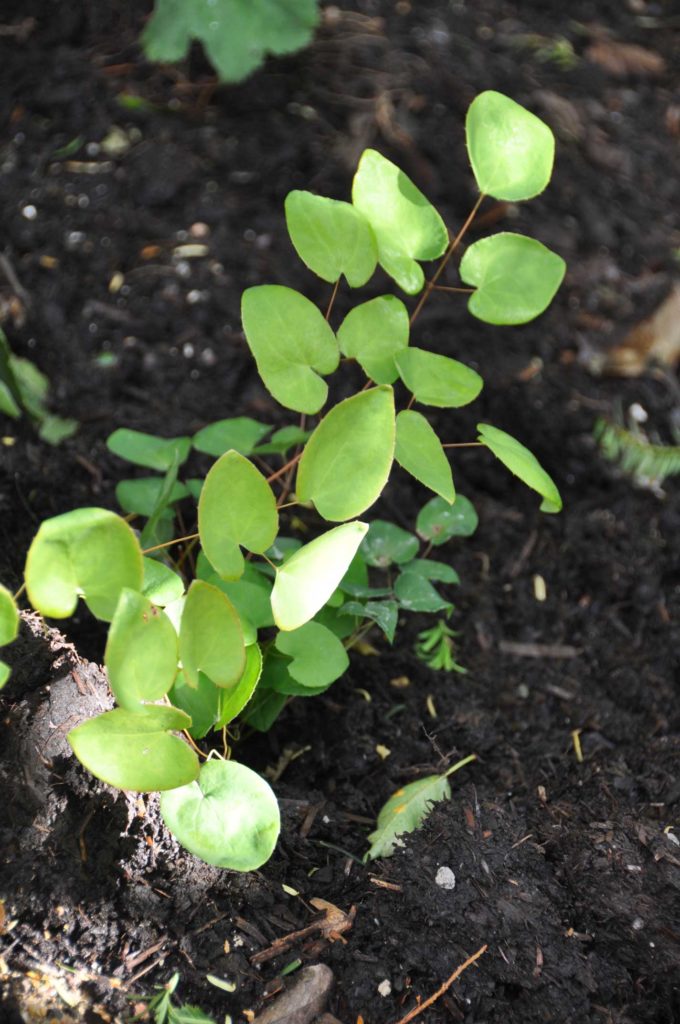
These plants seemed tiny when planted yet have totally taken over their space and are in danger of crowding out one of my ferns. This year might be the year to dig some up and transplant it to one of the barer parts of the garden.
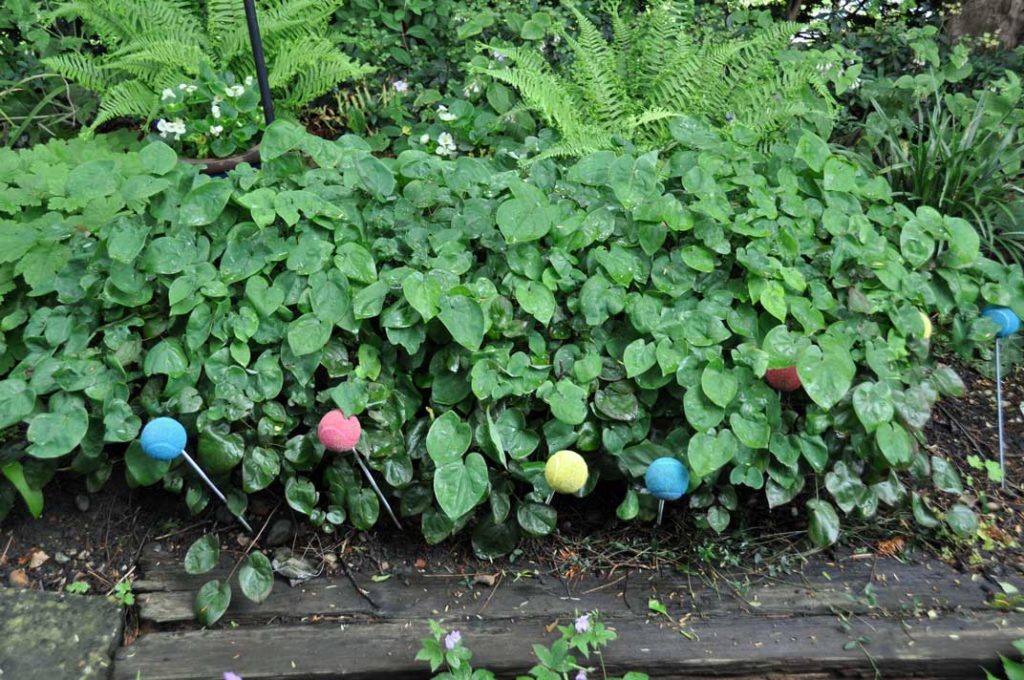
- Geranium nodosum, Geranium maccorrhizum Spessart and Geranium phaeum Album
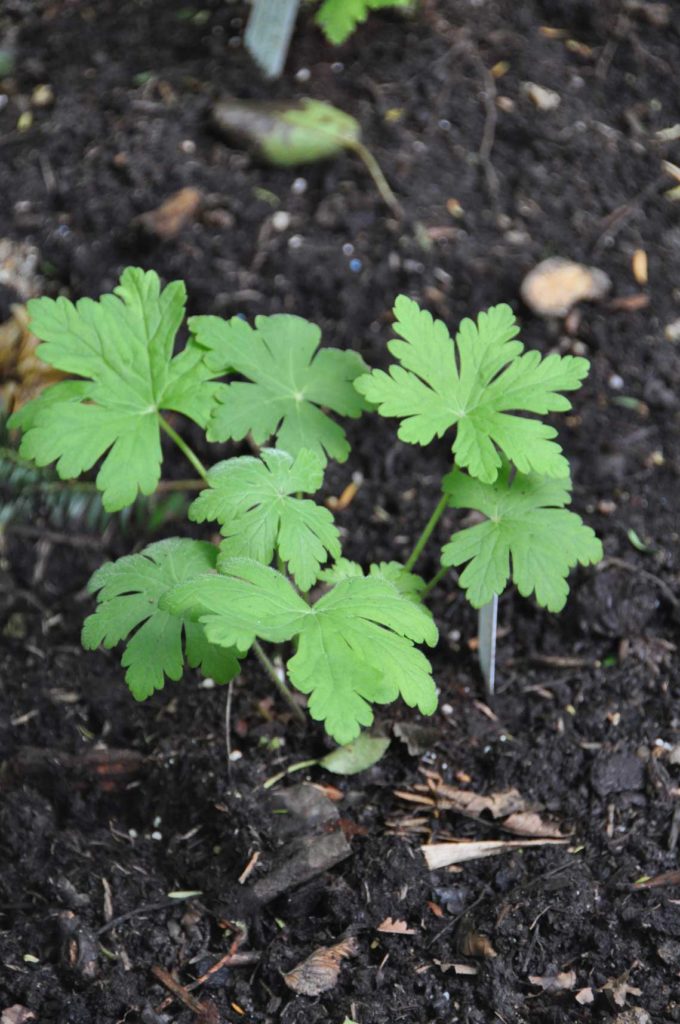
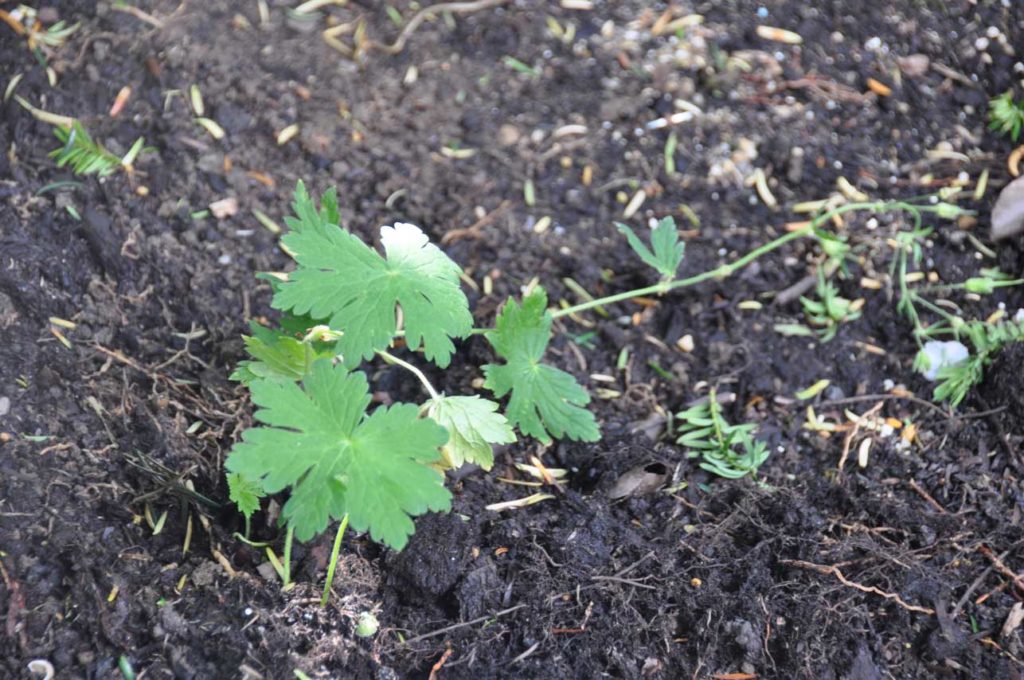
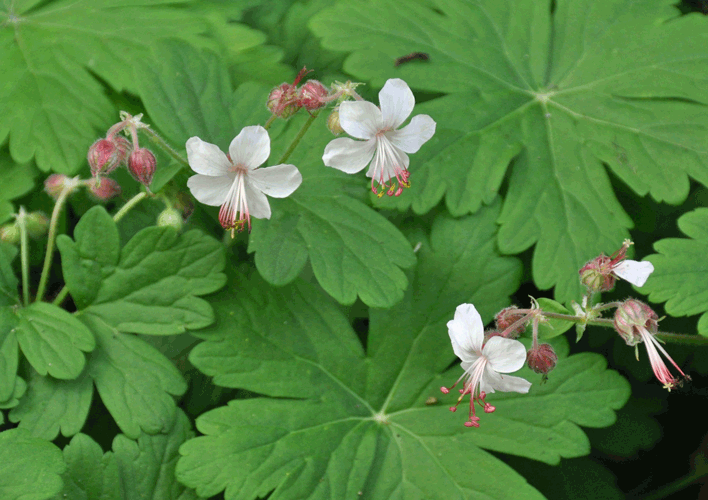
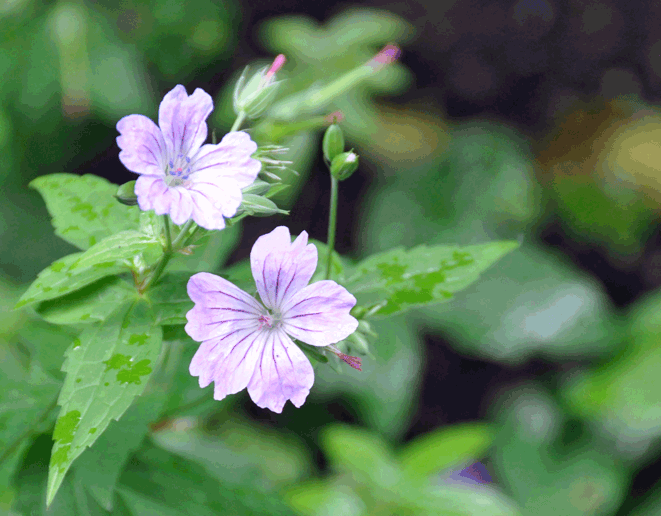
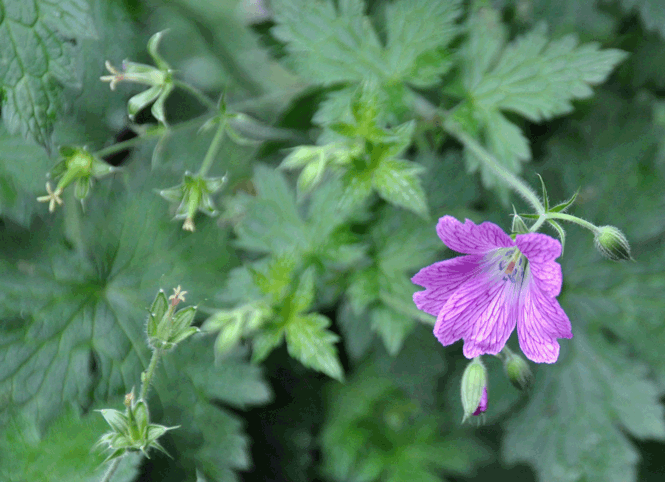
The white geranium is doing well but the pink one is taking over. It is an incredible thug spreading everywhere and only partly redeemed by being so pretty. This year I’m going to have to dig some up and either compost or pot up for friends. It’s the kind of plant that can only be handed on with warnings.
For the Autumn, I’d have to recommend both asters and liriope “Big Blue” which have survived and thrived to varying degrees.
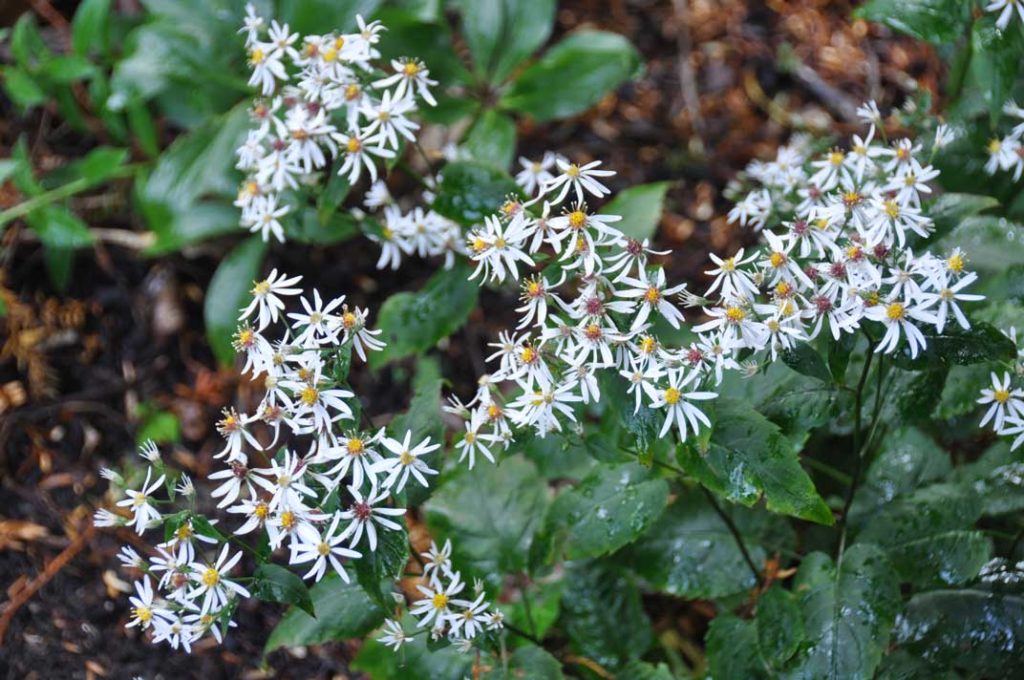
Although the planting tried to stretch through the year, there are few flowering plants that really catch the eye in the shade. One exception would be a plant that has succeeded despite the dry, such as:
- Helleborus
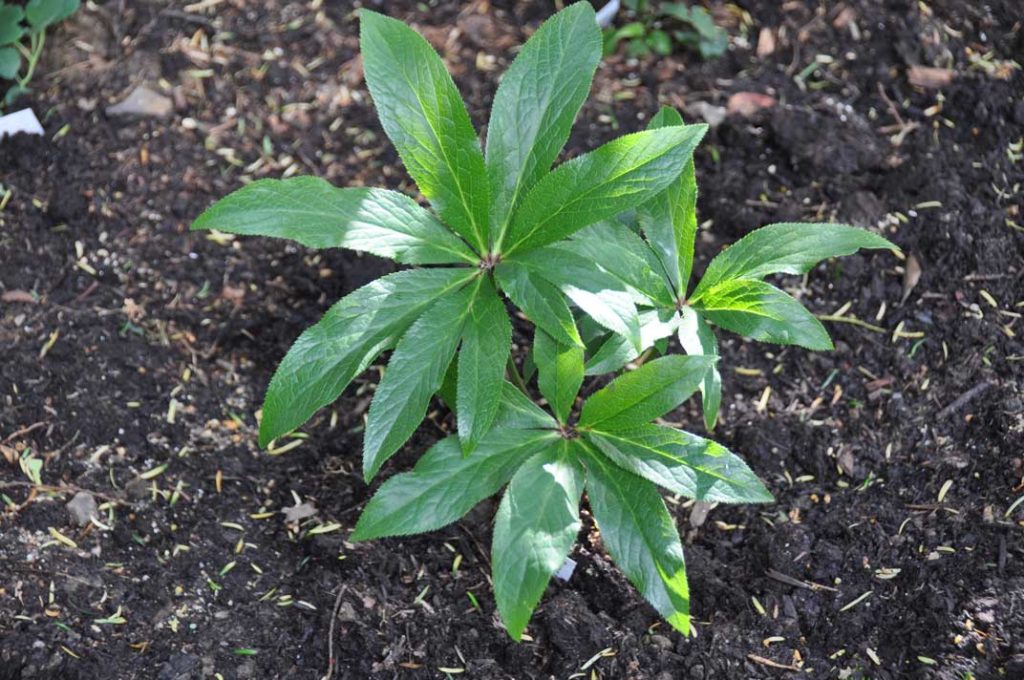
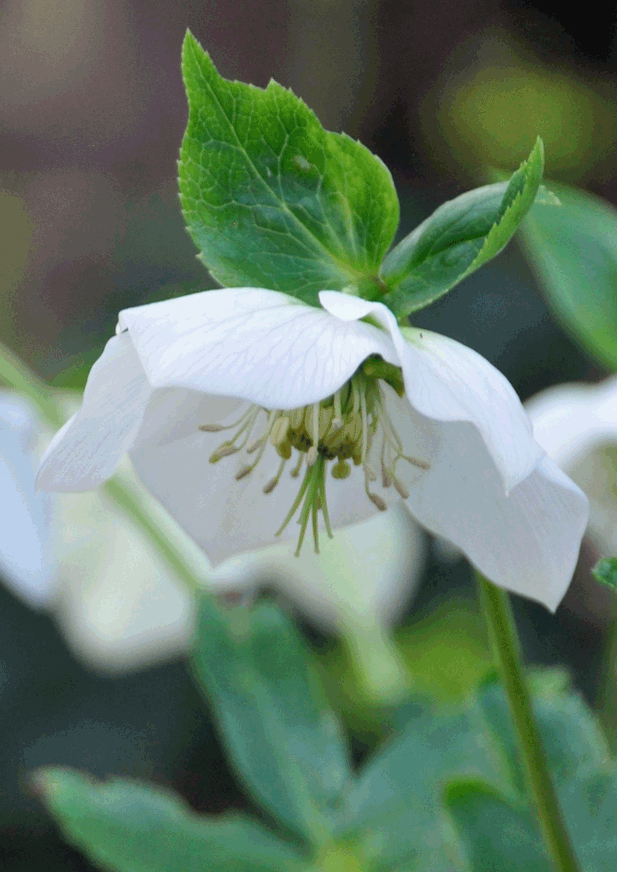
The hellebores were planted in the bed as far from the yew hedge as possible. Each year they arrive sometime towards the end, and generally flower through to Spring, probably enjoying the warmth of my shady plot. They are truly some of the most beautiful plants in my garden, appreciated all the more for appearing when everything else is sleeping.
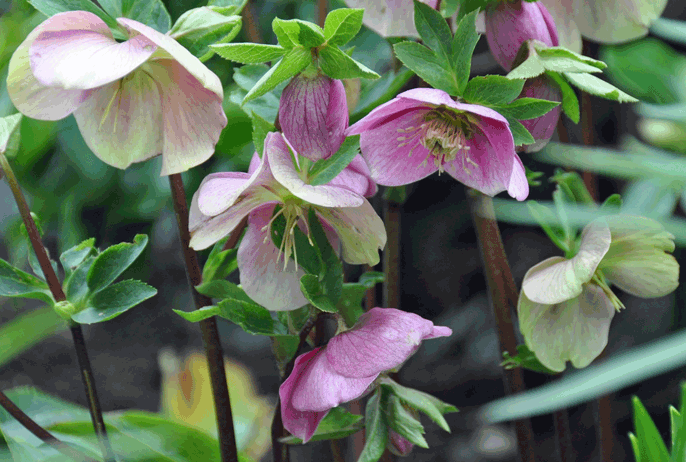
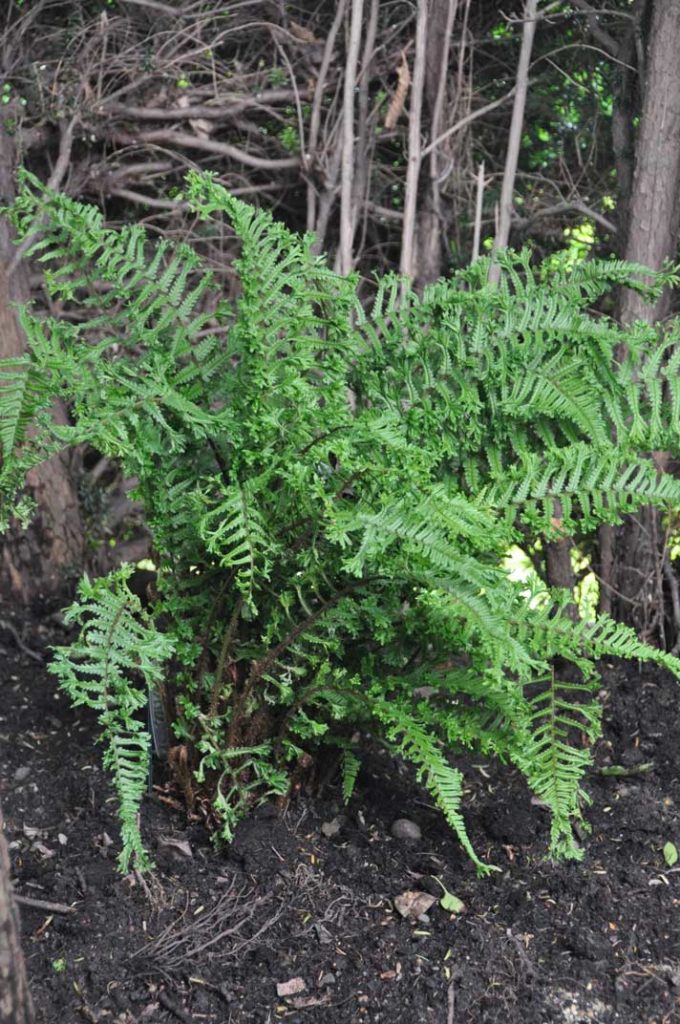
The huge dryopteris affines “cristata” ferns have had a mixed experience in my shady plot.In the end, I’ve planted most in large pots mostly sunk down into the ground. They are watered and have watering globes in their pots for dry periods.
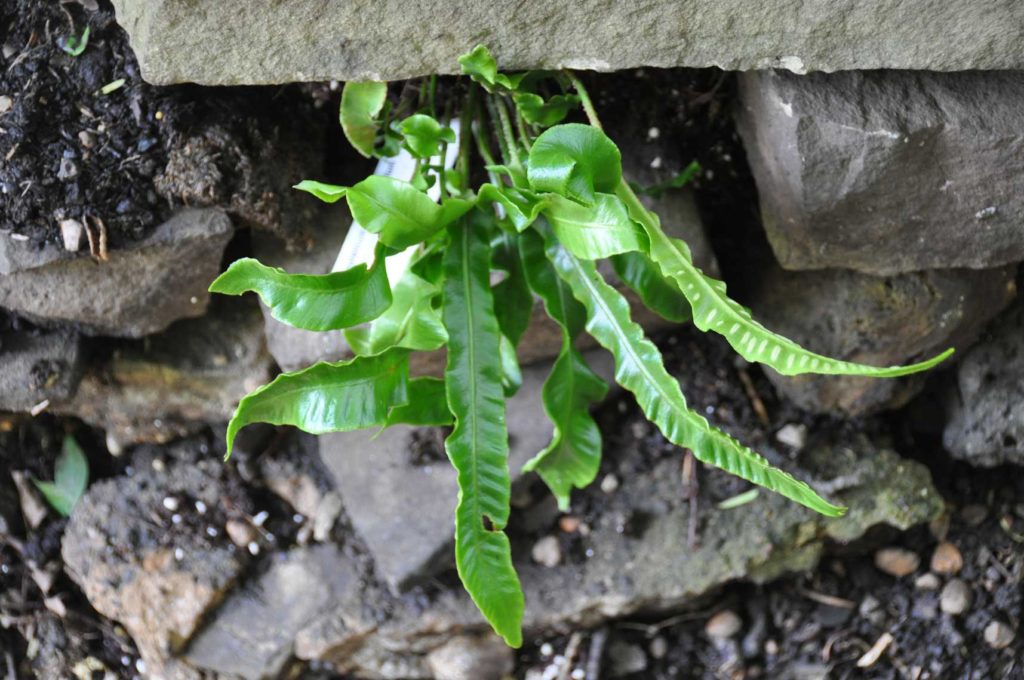
Even the small polypdium fern had to be moved from within the dry stone wall to the ground, where it’s now thriving.
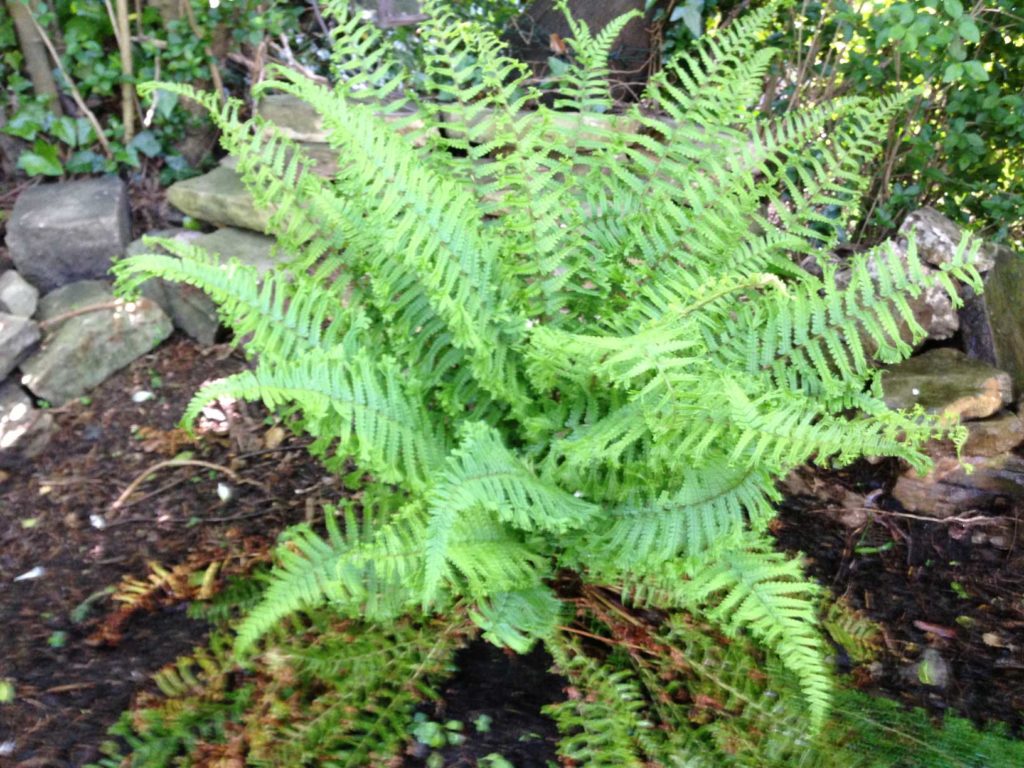
Plants which have failed to thrive (though may do perfectly well in other people’s garden) include:
- Alchemical Mollis suffers from having been planted in the most difficult spots. It grows but doesn’t appear lush and threatening (yet).
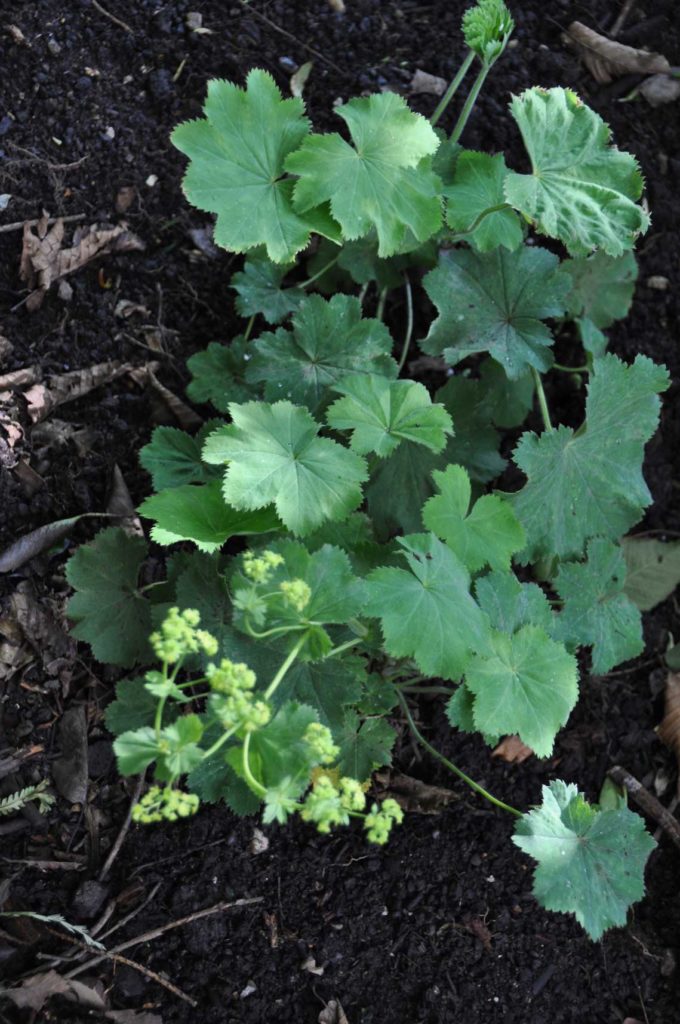
- Aquilegia Vulgaris grew well initially but has faded this year
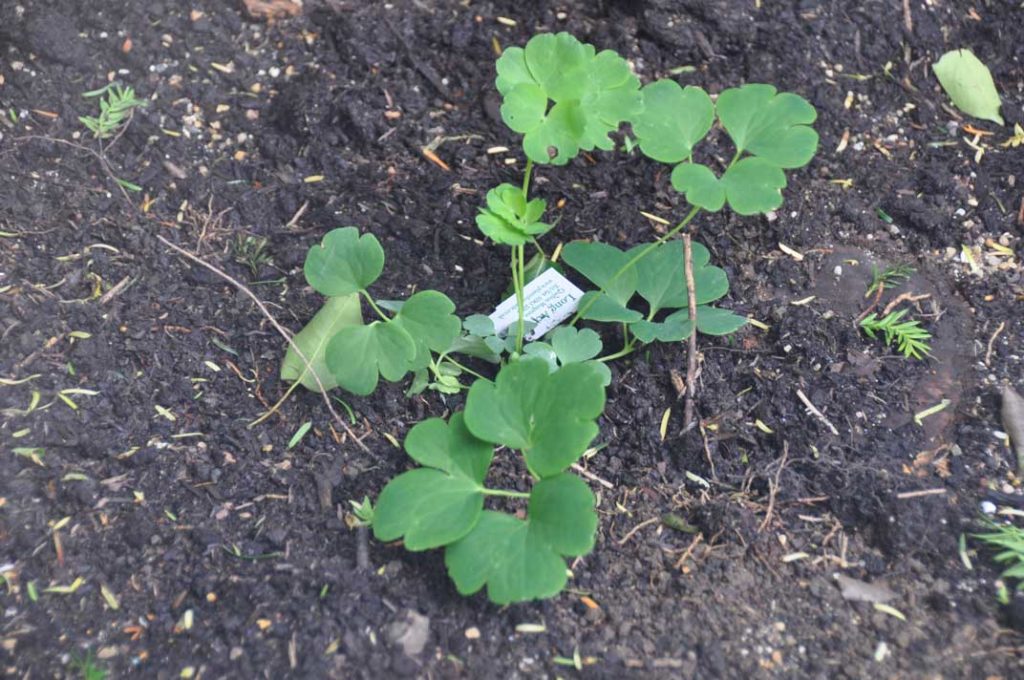
- Brunnera “Jack Frost” loved by slugs (nematode treatment planned for next year)
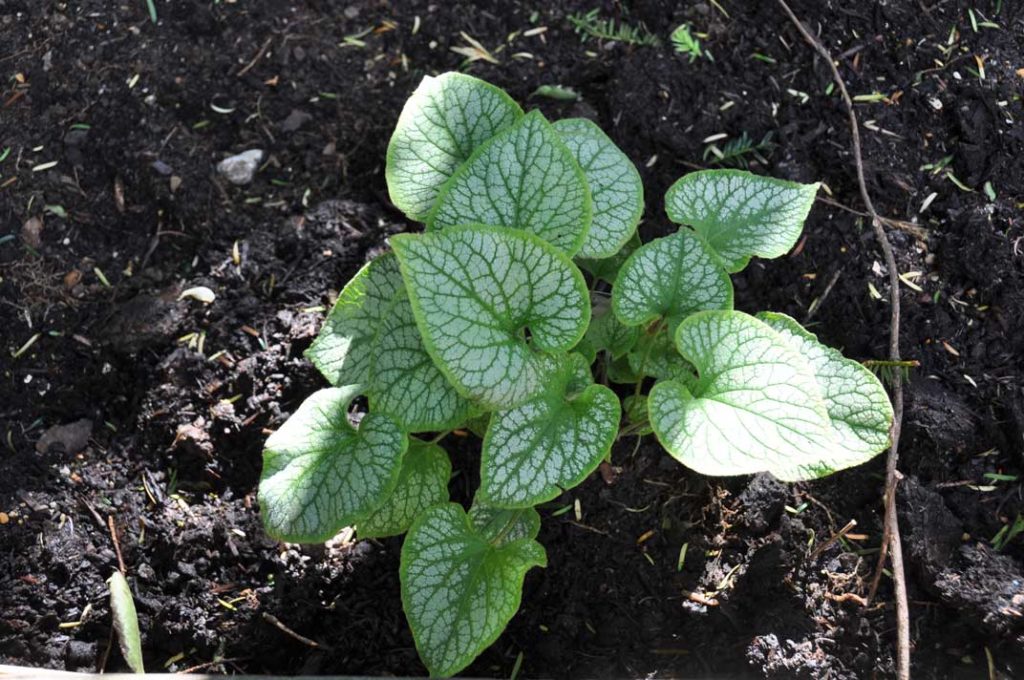
- Polonium caeruleum (Jacob’s Ladder)
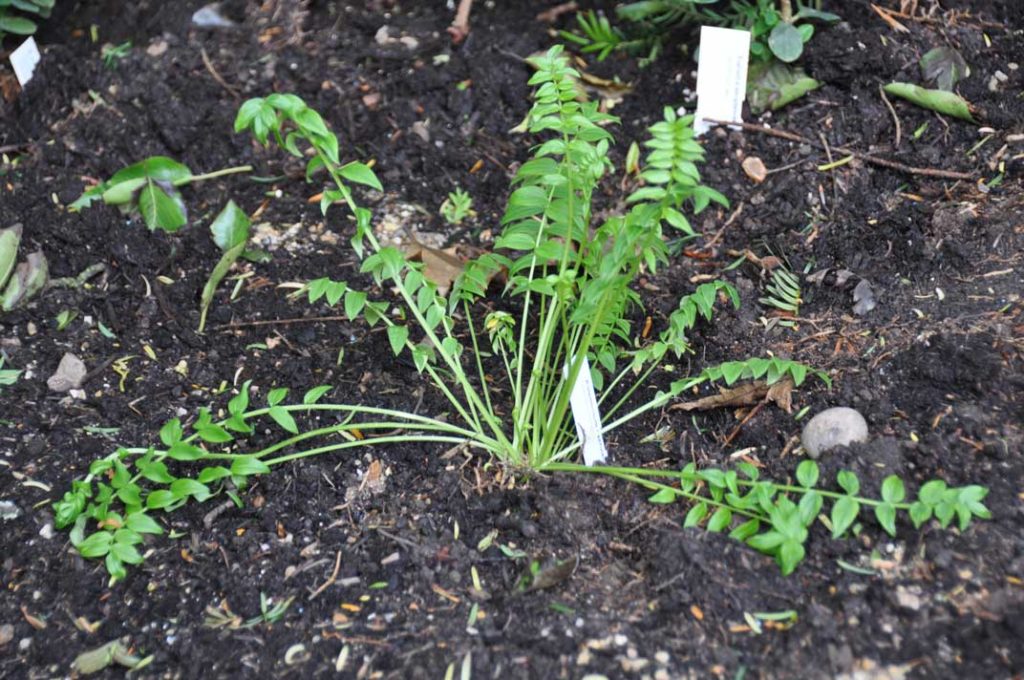
- Vinca – maybe I just bought the well-behaved variety but this hasn’t spread well
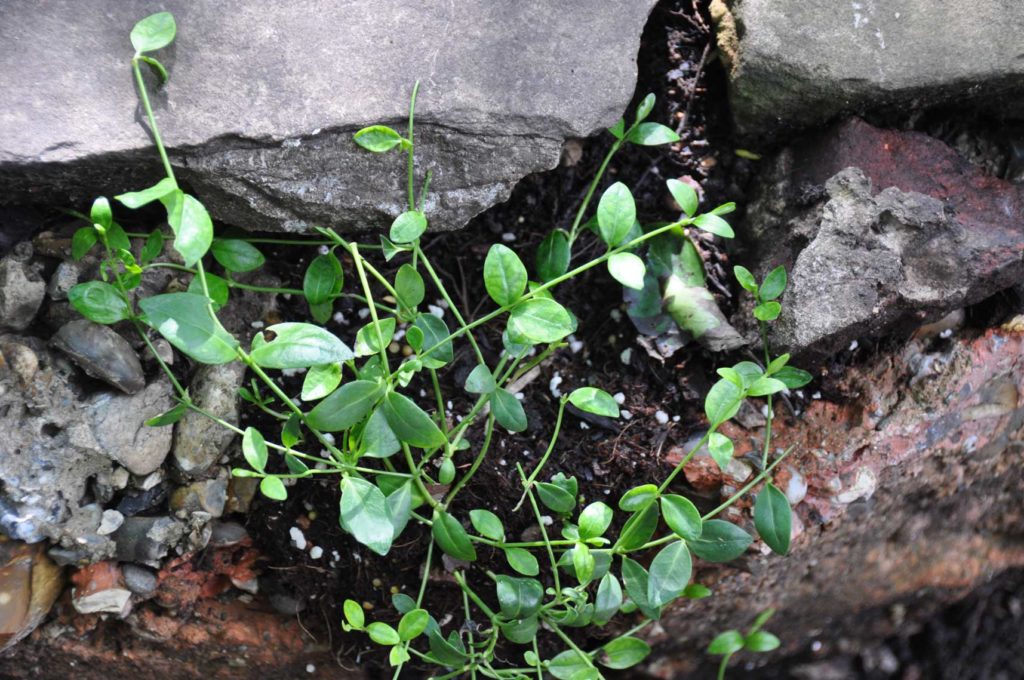
It’s a work in progress. The secret to success seems to be finding the right plant for a very tricky spot whether they’re weeds or not. Surprisingly there are plants that will thrive even in the most inhospitable location.
Now all I need to do is find a home for some geraniums

